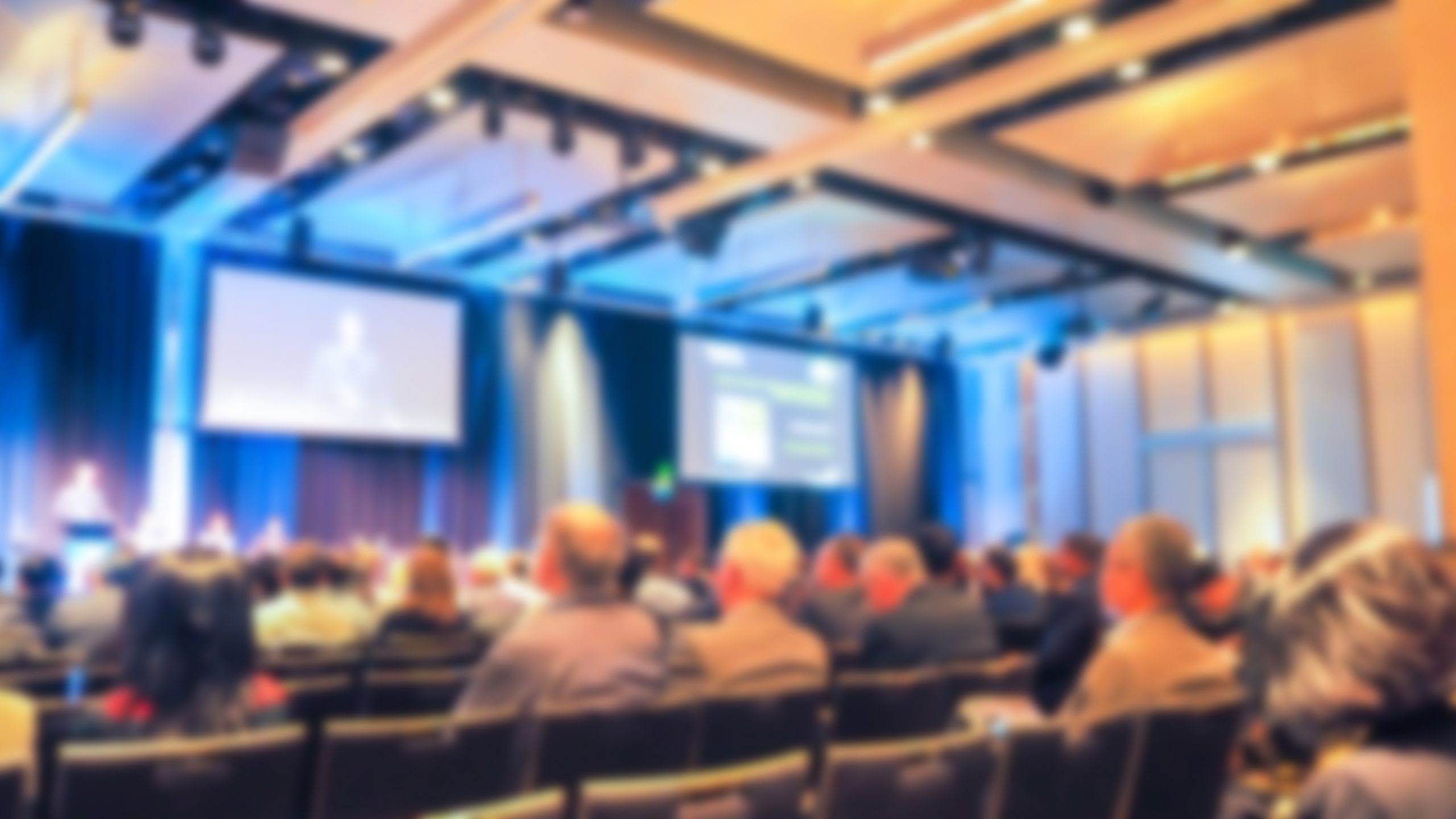Updates:
##COVID-19 Update##
Even though COVID-19 is currently stable and under control in Thailand, CSBio2020 would remain an online conference that will take place virtually, based on the Bangkok, Thailand time zone of GMT/UTC +7.
CSBio2020 is a part of the activities and events in the AI Week in Bangkok, Thailand during Nov. 18-22, 2020, and collocating with ICONIP2020 and the 4th Deep Learning and AI Summer/Winter School (DLAI4).
ABOUT
With the advancement in next-generation molecular technology in generating the high-throughput “omics” data, life science has come to the era of “big data”. To extract biological knowledge from the data and translate it into benefits for society (e.g. better medicine and healthcare), novel and advanced computational tools are needed for data analysis. The current trends are to leverage AI and application of cognitive computing that combines domain knowledge with machine learning.
Call for Papers
The call for paper targets contribution in the field of computational approaches designed to face the challenges aroused by biological systems. It aims at giving an overview of the cutting-edge methods and tools to address biological systems. A Special Session on COVID-19 Health, Analytics, and Technologies (CHAT-2020) will provide an opportunity for global research linkages and experience sharing.
CSBio 2020 would like to invite researchers and industrial counterparts to meet at this event to exchange ideas and stimulate research collaborations.
THEME: Innovation with AI and Cognitive Computing
Topics of interest include, but are not limited to:
TOPICS OF INTEREST
IMPORTANT DATES
-
Paper submission deadline :
August 1, 2020 (extended)
-
Paper notification:
September 8, 2020 (extended)
-
Late breaking paper submission deadline:
September 1, 2020
-
Late breaking paper notification:
September 15, 2020
-
CHAT-2020 submission deadline:
September 23, 2020 (**new**)
-
Camera-ready deadline:
October 1, 2020 -
Date of conference:
November 19-21, 2020
SUBMISSION GUIDELINES
Submitted papers should describe original work that does not overlap with papers that have been published or that are simultaneously submitted to a journal, conference, or workshop with refereed proceedings.
Papers should be written in English, formatted according to the ACM SIG style (sigconf template). Full papers needs to be at least 5 pages and should not exceed 10 pages and must be submitted via EasyChair system. Short papers of up to 4 pages may be considered as well as extended abstracts of up to 2 pages.
Papers must be submitted electronically as PDF files via EasyChair at https://easychair.org/conferences/?conf=csbio2020.
More information about the formatting of the paper can be found at http://www.acm.org/publications/article-templates/proceedings-template.html/
REVIEW PROCESS
Papers must be submitted electronically as PDF files via EasyChair. The limit for submissions is 10 pages. References and appendices will not be counted in the page limit during the initial submission process.
All submissions will be peer-reviewed and subjected to single-blind review process by at least two reviewers; full submissions will be reviewed by at least three reviewers. All accepted papers must be presented at the conference, either in person or via a video recording; the presenter or a representative must attend virtually at the allocated time slot for Q&A.
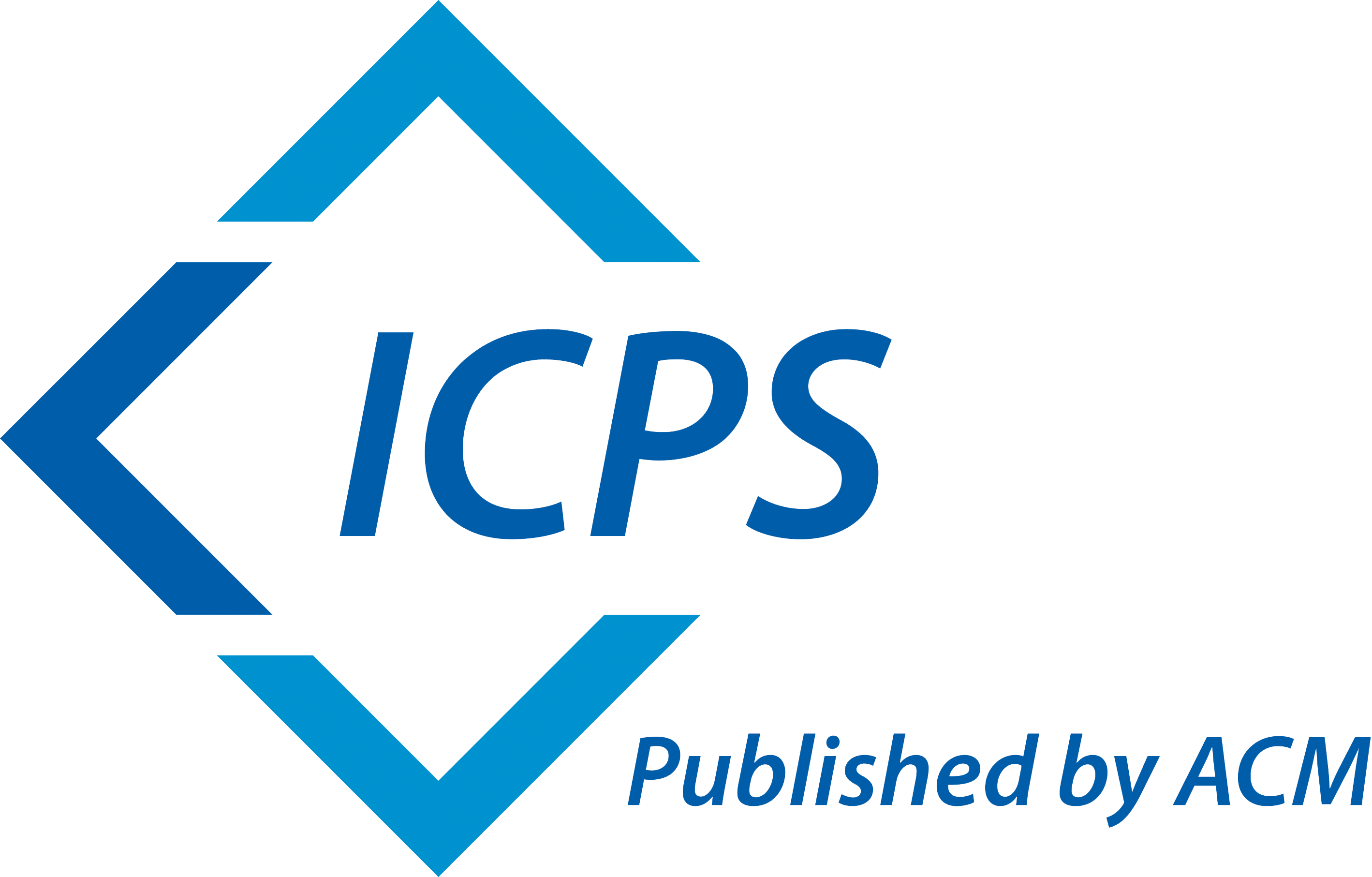
PROGRAM
The conference program is now available.
## CSBio2020 Tutorial Schedule ##
Update : 14 Nov. 2020
Download file here.
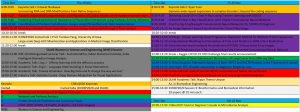
KEYNOTE SPEAKERS
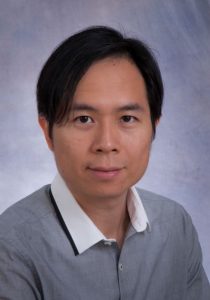
Title: Genome-wide repeat expansions in complex disorders: beyond the coding sequence. [video]
Biography:
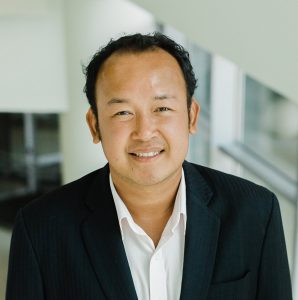
Title: Uncovering RNA and DNA Modifications from Native Sequences. [video]
Biography:
Intawat Nookaew is currently an Associate Professor in the Department of Biomedical Informatics at the University of Arkansas for Medical Sciences (UAMS) College of Medicine. He received his PhD degree Chemical Engineer from the King’s Mongkut’s University of Technology Thonburi, Thailand in 2007. In his thesis work, he focused on multilevel-omics data analysis and integration to study lipid metabolism of yeast at genome-scale level.
After completing his PhD, he continued to have training as postdoctoral fellow (2008) in Chalmers University of Technology in Sweden in the area of Systems Biology in Biotechnology and Biomedical research. In 2012, he accepted the Assistant Professor and was promoted to be Associate Professor in 2014 in the Department of Chemical and Biological Engineering at Chalmers University of Technology in Sweden. He developed many useful bioinformatic software packages and web service that can be applied in broad applications.
In 2014, Intawat accepted a Senior Scientist position at Oak Ridge National Laboratory, TN, USA. He was a part of two big team science projects to which are Bioenergy Science Center, focused on development of consolidate bioprocess to produce biofuels from lignocellulosic materials and Plant Microbe Interface, focused on deeper understanding of beneficial interaction of microbial community and plant.
In 2016, Intawat pursue his interest in Biomedical research, he accepted an Associate Professor in the Department of Biomedical Informatics (UAMS). While at UAMS, he has focused on development of computational/bioinformatical methods to advance the utilization of cutting-edge technologies for study RNA/DNA modifications and microbiome in Biotechnology and Biomedical research.
Intawat has published over 130 peer-reviewed articles and book chapters. He was recently recognized by the Web of Science group for the quality of his research as a Highly Cited Researcher 2019. He has over 9,300 citations, H-index = 42, i-10 index = 83 based on Citation at Google Scholar.
Abstract:
Ribonucleotides modifications to mRNA play important roles biological regulations. Over 170 types of RNA modifications have been experimentally validated. Their detection traditionally relies on specific antibody-based enrichment and analytical chemistry tools; these approaches are labor intensive and can detect only one or a few modifications at a time. This is insufficient to truly assess complete transcriptomes for sequence-specific identification and quantitation of epigenetic signals. Recently, we were the first to use third-generation Oxford Nanopore Technology (ONT) sequencing to directly sequence cellular RNA in native from, at a transcriptomic level. We determined that the method can uncover RNA modifications of any type. Based on the principle that such modifications are absent on cDNA (6) or synthetical unmodified RNA, we conducted a study that compared sequence features of native modified RNA with unmodified RNA of the same sequence. We developed a bioinformatics tool, ELIGOS (Epitranscriptional Landscape Inferring from Glitches of ONT Signals), that successfully identified modified RNA bases from the native RNA sequences. ELIGOS accurately predicts known classes of RNA methylation sites (AUC > 0.93) in rRNAs from E. coli, yeast, and human cells, by using either unmodified in vitro transcribed RNA or our developed background-error model, which mimics the systematic error in native RNA sequences. The validity of the approach was illustrated in transcriptomes of yeast, mouse, and human cells. We further apply ELIGOS in detection of DNA adducts and for distinguishing individual alkylated DNA adducts. We analyzed a library of 15 plasmids containing site-specifically inserted O6- or N2-alkyl-deoxyguanosine lesions differing in sizes, functional group and regiochemistries. Based on the native DNA sequences, ELIGOS can accurately identified the location of individual DNA adducts. Moreover, individual DNA adducts were clearly distinguished from each other at the signal level. ELIGOS software is publicly available and can be used to detect possible RNA and DNA modification sites at genome-scale from native RNA/DNA sequences.
REGISTRATION FEE
| Registration Fee | USD 200 |
| Listeners Fee |
USD 50 |
|
Additional Fee
|
|
| Additional Paper | USD 100 |
NOTE :
- The credit card payment is preferable.
- If using bank transfer, any cost incurred, e.g. transfer fees or bank surcharge, must be borne by the author(s).
- For claiming the discount of 50% (on the second and subsequent submissions), it is mandatory for the author to be listed as the “corresponding author” in all the submissions.
- Contact csbio2020@sit.kmutt.ac.th for any questions or concerns.
- If you want to transfer the money, Please Contact : Email: vajirasak.van@mail.kmutt.ac.th
COMMITTEE
International Advisory Committee (tentative)
- David W. Ussery, University of Arkansas for Medical Sciences, USA
- Jens B. Nielsen, Chalmers University of Technology, Sweden
- Bairong Shen, Soochow University, China
- Richard Wintle, The Centre for Applied Genomics, Canada
- Supapon Cheevadhanarak, KMUTT, Thailand
- Arinthip Thamchaipenet, Kasetsart University, Thailand
- Roger Bumgarner, University of Washington Seattle, USA
- Leong Hon Wai, the National University of Singapore, Singapore
- Marasri Ruengjitchatchawalya, KMUTT, Thailand
- Hongwu Ma, Tianjin Institute of Industrial Biotechnology, China
- Chalee Vorakulpipat, National Electronics and Computer Technology Center (NECTEC), Thailand
General Co-Chairs
- Jonathan H. Chan, KMUTT, Thailand
- Richard Wintle, Sick Children’s Hosptial, Canada
Program Co-Chairs
- Kanthida Kusonmano, KMUTT, Thailand
- Worrawat Engchuan, Sick Children’s Hospital, Canada
Publication Co-Chairs
- Chalida Rangsriwutisak, KMUTT, Thailand
- Photchanathorn Prombun, KMUTT, Thailand
Organizing Chair
- Vithida Chongsuphajaisiddhi, KMUTT, Thailand
Finance Chair
- Vajirasak Vanijja, KMUTT, Thailand
Secretary
- Narumol Doungpan, KMUTT, Thailand
Webmaster
- Panisara Promdee, KMUTT, Thailand
International Program Committee
- Alberto POLICRITI, Università di Udine, Italy
- Anne SIEGEL, IRISA, Rennes, France
- Asawin MEECHAI, King Mongkut’s University of Technology Thonburi, Thailand
- Carla PIAZZA, Università di Udine, Italy
- Daisuke KIHARA, Purdue University, USA
- Delphine ROPERS, INRIA Grenoble-Rhône-Alpes, France
- Elisabetta DE MARIA, Université Côte d’Azur, I3S, Sophia Antipolis, France
- Francine DIENER, Université Côte d’Azur, LJAD, Nice, France
- Géraldine JEAN, University of Nantes, LS2N, France
- Guang HU, Soochow University, China
- Ivan CIMRAK, University of Žilina, Slovakia
- Joelle DESPEYROUX, INRIA & CNRS, I3S, Sophia Antipolis, France
- Jonathan H. CHAN, King Mongkut’s University of Technology Thonburi, Thailand
- Kanthida KUSONMANO, King Mongkut’s University of Technology Thonburi, Thailand
- Katsumi INOUE, National Institute of Informatics, Japan
- KWOH Chee Keong, School of Computer Science and Engineering, Singapore
- LEONG Hon Wai, the National University of Singapore, Singapore
- Limsoon WONG, National University of Singapore, Singapore
- Madalena CHAVES, INRIA Sophia Antipolis Méditerranée, France
- Mohammad Kawsar SHARIF SIAM, Brac University, Bangladesh
- Osamu MARUYAMA, Kyushu University, Japan
- Richard WINTLE, The Hospital for Sick Children, Canada
- Shuigeng ZHOU, Fudan University, China
- Shunsuke AOKI, Kyushu Institute of Technology, Japan
- Sorayya MALEK, University of Malaya, Malaysia
- Sun KIM, National Institute of Health, USA
- Sylvain SOLIMAN, INRIA Saclay-Île-de-France, France
- Tatsuya AKUTSU, Kyoto University, Japan
- Teeraphan LAOMETTACHITt, King Mongkut’s University of Technology Thonburi, Thailand
- Teerasak E-KOBON, Kasetsart University, Thailand
- Thana SUTTHIBUTPONG, King Mongkut’s University of Technology Thonburi, Thailand
- Thao DANG, CNRS/VERIMAG, France
- Weerayuth KITTICHOTIRAT, King Mongkut’s University of Technology Thonburi, Thailand
- Worrawat ENGCHUAN, The Hospital for Sick Children, Canada
- Yoichi TAKENAKA, Osaka University, Japan
- Yuriy ORLOV, Institute of Cytology and Genetics, Russia
VENUE
Online – Anywhere on Earth (based on Bangkok, Thailand time of GMT/UTC +7)
Collocating conferences of ICONIP2020/ACML2020/iSAI-NLP2020 still plan to have a hybrid format of both online and physical participation in Bangkok, Thailand.
Sponsor:
CONTACT US
Email : csbio2020@sit.kmutt.ac.th

